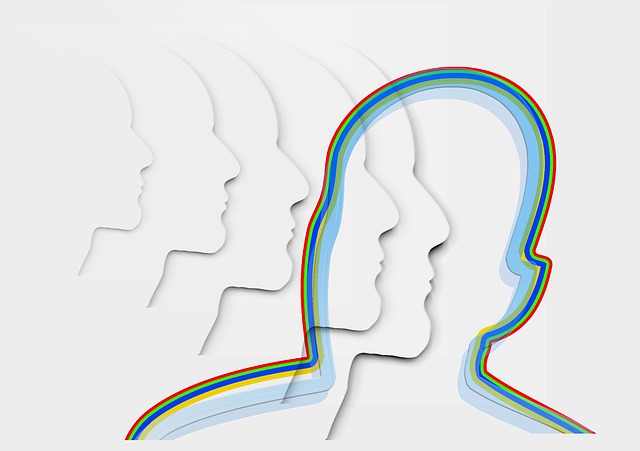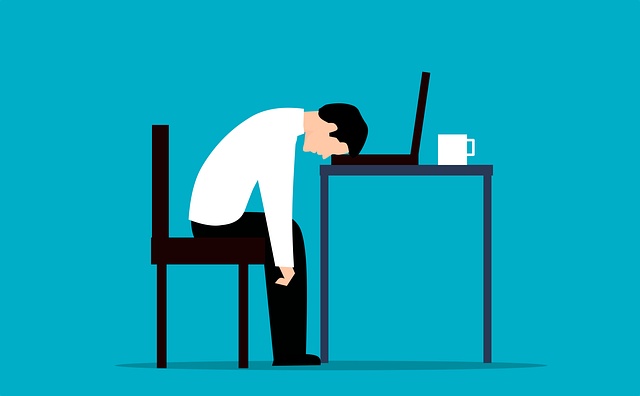I don’t recommend going through an existential crisis. Mine was the most debilitating time of my life. I was overthinking my life, feeling lost, and emotionally and physically painful.
Unfortunately, it’s impossible to avoid an existential crisis completely. It can hit everyone, no matter how prestigious your job is or how successful your business is. One day our business might collapse, or we would find what we do boring and look for alternative sources of meaning. That’s natural and happens to many people worldwide.
The good news is that we can reduce the risk of such a crisis by maintaining a balanced, meaningful life in the first place. This way, if life gets rough and we doubt our purpose, at least we have multiple things that can drive us meaning and alleviate the suffering.
In this article, I share the lessons I learned the hard way to help you protect your soul as much as possible and avoid what I went through. That’s not guaranteeing anything, as we can’t anticipate what life will throw at us. But it’s better than living life unprepared.
I provide tips and hacks to embrace various sources of meaning in life, so you’ll be at least more resourceful if and when you cope with an existential crisis.
If you face an existential crisis already, check this thorough guide and seek help from professionals.
Now, let’s briefly overview what is an existential crisis and what are some examples of such a crisis.
Disclaimer : The information provided in this article is for educational purposes only, and it is not a substitue for professional advice. The article may contain affiliate links. See the full disclaimer for more details.
Existential crisis examples
An existential crisis is when a person feels lost, confused, and uncertain about the meaning of life. A major life change, such as a job loss, any failure or a death in the family, or a health diagnosis, can trigger it. Existential crises can also be caused by overworking or prolonged stress or anxiety, as you’ll soon see in my story.
The existential crisis has a negative association but is also a positive thing. It’s a powerful way for our mind and body to guide us to change our career path, lifestyle, or direction.
Existential crises can hit in different forms. Here are some examples:
Questioning the meaning of life
This is one of the most common types of existential crises. People may start questioning why they are here, their purpose, and whether their life has any meaning.
Since I was young, I haven’t known what I’ll be when I grow up. I studied non-professional degrees in sociology to better understand the world around me. I addressed philosophical questions about our existence and my role on Earth.
At the same time, I didn’t find meaning in the jobs I filled over the years, as most were administrative or customer service oriented. Working there was important financially, but I got no sense from doing repetitive tasks for my employer. I felt I must provide value to impact, earn more, and get more respect for what I do.
Feeling lost or directionless
This can happen when people undergo a significant life change, such as graduating from college, starting a new job, or having a child. They may feel they don’t know what they want to do with their lives.
That’s what happened to me four years ago. I failed to win a full scholarship for my Ph.D. in sociology, and my academic aspirations were gone. I felt mentally and physically awful and hadn’t progressed for about a year. I was fatigued and empty, with no sense of purpose as a replacement for my academic plans.
Finally, I found my new lane after three years of self-exploration. Reinventing myself as a content creator was challenging but worth the effort. Today I regained the meaning I lost in the crisis.
Feeling isolated or alone
People who feel isolated or alone may question the value of human connection and the meaning of life. They may feel they don’t belong anywhere or that their life is meaningless.
Being alone can also play a significant factor in deteriorating a current existential crisis. For example, when I lost my scholarship and entered the darkest time, I isolated myself from the community. I quit my job to explore my new path, which was a huge mistake.
Confronting death
The death of a loved one, or a near-death experience, can trigger an existential crisis. People may start thinking about their mortality and what happens after death. My grandmother’s death on December 19th was deteriorating my low mood. I lost my professional identity, so losing her, too, as she was the most optimistic figure in my family, was crippling.
Nonetheless, I’m sure the death of a close one like children, parent, or young friend is harder to digest. This alone can cause an existential crisis as you see the death through the close person who just died. That dreadful experience makes sense why people overthink their existence.
How to reduce the risk of an existential crisis
Now let’s get to the burning question of this article – how to avoid an existential crisis?
The harsh truth is that it’s impossible to avoid an existential crisis. It can strike anyone at any time, no matter what. However, a couple of steps can reduce the chance of having such a crisis. Here are seven steps comprising the lessons I learned the hard way in my crisis:
1. Explore your purpose – the sooner, the better
This aspect is the cornerstone of avoiding existential crises. I mean, reducing the risk of it. My primary mistake was delaying facing who I am and what I should do.
Instead, I studied for nonprofessional degrees (sociology) and worked in Backoffice positions. I imagined myself as a scholar, but that vision turned out to be naive. It’s a highly competitive field, and I figured it was too much for me during the crisis.
It was only in my mid-30s that my crisis forced me to reevaluate who I am and what I should do with my life.
So, please don’t repeat my mistakes.
Avoid delaying sorting out your purpose. Listen to your mind and body and journal your strengths and experiences. Consult with friends or professionals on translating your strengths and unique life experience into a lucrative career, killer business idea, or personal brand.
2. Locate multiple sources of meaning

So, as you can see, it’s unpleasant and unhealthy to go through an existential crisis. All my identity was based on my academic progress, and when that got to a deadlock, I fell apart. That’s why I recommend diverging your purpose into multiple things you love.
Those can be playing golf, tracking in nature, playing guitar, starting a side hustle on some of your hobbies, hanging out with friends, establishing a meaningful relationship, or raising a family.
The thing is to have multiple sources of meaning at each point in life. If you get bored with one or life hits you hard, you can at least derive meaning and joy from the other courses.
You might ask yourself: “This blogger is stating the obvious.. I have multiple interests already. Everyone has! How can that help me?” Then, I’d say you are only partially correct.
What I meant by multiple sources of meaning is that you put time and energy into activities to an extent in which they play a significant role in your identity. Playing bowling once a month doesn’t count, nor does having a vacation in some exotic place abroad. These are fun activities but aren’t steady sources of meaning.
Establishing sources of meaning can be mastering a hobby instead of just engaging with it, initiating a group to fight for a social cause, or starting a side hustle. Put the hard work into establishing two or more sources of meaning instead of only one.
While we are told to focus on one thing 100% to outperform the competitors, devoting part of our time to start another initiative as a backup source of meaning is essential in existential terms.
The idea here is protecting yourself from over-pessimistic and nihilistic thoughts and reducing the chance of experiencing a severe existential crisis like mine.
If investors diversify their stocks on various successful companies to reduce risk, why don’t we do the same thing to protect our identity?
Why not diversify your sources of meaning so that even if one drops out for some reason, you’ll have other sources to rely on?
3. Avoid overwork

Working hard is great, but not overworking! I’ve been there. It was one of the main factors of my existential crisis. I worked full time in the investment house and at the same time got prepared for an IELTS exam. I needed a better score to get accepted to the universities in the U.K., so I learned alone in my spare hours every day.
That was too much for my brain and body. This, together with a blood donation I gave one day in the summer of 2018, knocked me down to anxiety and feeling lost.
4. Don’t leave your job to find purpose
While overworking is not advisable, going in the opposite direction isn’t good either! Quitting your job puts you in an overthinking mode as you have no schedule and are too alone with your thoughts.
That’s not beneficial to find your lane.
Your job keeps you busy and present. On the other hand, being at home alone all-time directs you into overthinking your life. If you have more time alone, the crisis will be more debilitating, like in my case. Please don’t repeat my mistake and explore your next step while keeping your current job.
Learn more about that and reveal what is the healthier way to explore your purpose.
5. Healthy mindset
Life is all about balance, and so concerning finding purpose.
While exploring purpose as early as possible is essential, it can be destructive if you overthink it. So, it’s all about finding the balance between trying to see the big picture of your life and not taking that too seriously and enjoying the moment. Develop a healthy, growth mindset.
One way to get there is by reflecting on your work and hobby experience in your journal once a week, not every day. This allows you to feel the moments in your life while still trying to build something meaningful from your experiences. Have a plan but don’t overthink it. Think about the future but allow time to relax and be spontaneous.
6. Practice mindfulness
Mindfulness is the practice of paying attention to the present moment without judgment. It can help you to focus on the here and now and to let go of worries about the past or future.
There are many ways to practice mindfulness, such as meditation, yoga, or simply taking a few deep breaths when you feel overwhelmed. Don’t be committed to one method. Try what works best for you.
For me, classical meditation, in which you sit and close your eyes for about half an hour, is less effective. Instead, I prefer to meditate more spontaneously. I feel the sofa and pillows around me or focus on specific objects in the room. All these help me to be present and find some stillness.
So, try out the different techniques and see what helps you the most to stay in the here and now.
7. Connect with others

Feeling isolated and alone can increase your risk of experiencing an existential crisis. Therefore, connect with friends, family, and others who care about you. Social connection can help you feel supported and grounded, making coping with complex thoughts and feelings more manageable.
Today there are numerous online to offline apps like Facebook groups and “Meetup” suggesting various online events. There you can meet new people who live nearby or are interested in your hobbies.
As a single 38-year-old, I use these social apps often, as most of my friends already live in different vibes with their wives and kids. These apps are such excellent solutions for socializing from scratch.
Final thoughts
I don’t want to delude you. Avoiding existential crises is impossible. It can strike at any moment in life, to anybody, anywhere, no matter how fulfilled we feel. The breakdown of meaning in life lurks at us all the time, especially when we reach our 30s or 40s. Many life changes occur in this age zone, and some of us are exposed to identity or existential crises.
But you can take measures to reduce the risk of a total breakdown, from journaling your thoughts and ideas to practicing meditation and diversifying your sources of meaning. These measures and other techniques I suggested in the article can help reduce the chance of crashing into an existential crisis.
There is no guarantee of avoiding an existential crisis, however. Yet, listening to your body and living a balanced, meaningful life is the best way to protect our souls from debilitating identity crises.
I hope you find my insights on existential crisis helpful.
To your meaningful, balance, happy life
Shachar
Shachar is a blogger and sensitive person who worked in a recruitment company and holds a master’s degree in sociology. After years of struggles to find purpose, he made this blog to help others find their purpose more efficiently. He likes to play chess, walk in nature, and take photos in his free time.


